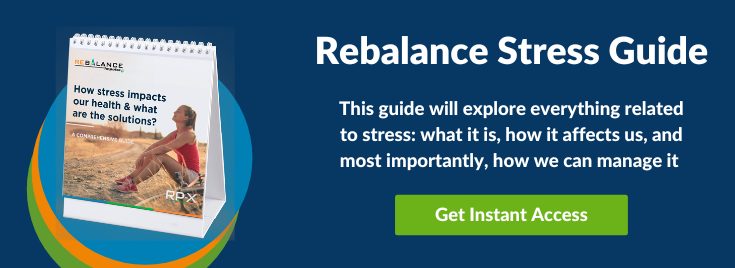SLEEP STAGES, WHAT ARE THEY? HOW CAN I IMPROVE MY SLEEP QUALITY?
SLEEP STAGES| NEUROTECHNOLOGY
Concentrating on your sleep schedule is common when attempting to achieve the necessary rest. While the length of sleep is unquestionably significant, it is not the sole factor in the equation.
It's also important to consider sleep quality and whether the time asleep is restorative. A crucial component of receiving high-quality rest is the smooth movement through the four distinct sleep stages that make up the sleep cycle.
Your mind and body feel rested and restored thanks to each stage of sleep. Understanding the sleep cycle also makes it easier to improve your sleep quality. We also provide some valuable tips on falling asleep and, more importantly, staying asleep until your alarm goes off.
SLEEP STAGES: WHAT DOES THIS MEAN?
Your overall amount of sleep is divided into numerous iterations of the sleep cycle, which consists of four distinct stages throughout your sleep pattern.
Typically a person has four to six sleep cycles per night. Although the duration of each sleep cycle varies, on average, they last 90 minutes.
As your sleep progresses, it's common for your sleep cycles to shift. While later cycles often last between 90 and 120 minutes, the initial sleep cycle generally lasts between 70 and 100 minutes, making it the shortest process.
Additionally, as the night goes on, the makeup of each cycle and the amount of time spent in each stage of sleep can change.
The length of a person's sleep cycle can vary from night to night and person to person depending on various factors in and out of your control, such as your age, previous sleep patterns, and external factors, including alcohol usage or simple things like sleeping in a messy bedroom (more on that later).
 Image source: Unsplash
Image source: Unsplash
WHAT ARE THE FOUR CYCLES OF SLEEP CALLED?
The sleep cycle progresses through four stages: light sleep, deep sleep, REM sleep, and the dream state. Moving efficiently and smoothly through each step to achieve high-quality sleep is essential.
During light sleep, your eyes are closed but can still move rapidly under your eyelids. Your brain activity slows, and you may experience muscle twitches. This is the beginning of the sleep cycle.
As you enter deep sleep, your eye movement stops completely, and your brain waves become slower. You may experience periods of shallow breathing and a decrease in blood pressure and heart rate. Deep sleep is critical for feeling rested and refreshed when you wake up.
REM sleep is when you dream. Your eye movement becomes rapid and random, and your brain waves are similar to those experienced when you are awake. Your breathing may also become irregular and faster during REM sleep.
The dream state is the final stage of sleep. It is lighter than REM sleep, and your eye movement slows. Your brain activity also decreases.
WHAT HAPPENS DURING EACH STAGE OF SLEEP?
When you enter the first stage- light sleep, this phase usually lasts one to five minutes and is known as the "dozing off" phase.
Although the body hasn't fully relaxed during light sleep, body and brain functions start slowing down with brief periods of movement. Slight alterations in brain activity accompany this stage of sleepiness.
Deep sleep is the second stage of the process that sees the body go into a more passive state with lowered body temperature, relaxed muscles, and slower breathing and heart rate. Eye movement ends simultaneously when brain waves exhibit a new pattern.
While overall brain activity decreases, brief bursts of brain sleep activity help people avoid being woken up by outside stimuli.
Deep sleep is the most restful sleep. It usually lasts for around 30 minutes during the first sleep cycle and can lengthen to around an hour as rest progresses.
People usually only spend around 20% of their sleep in this stage. Slow brainwaves dominate during a deep sleep with the occasional burst of rapid waves. Eye movement also stops during this stage.
The following sleep stage is REM sleep, which moves into the linked dream state. REM sleep usually makes up 25 to 30% of sleep time and occurs in 90-minute cycles throughout the night. The first cycle usually lasts only 10 minutes, but each subsequent cycle gets longer as sleep continues.
During REM sleep, brain activity appears similar to when people are awake, and dreams occur as the brain processes information and stores memories. The final stage of sleep is the dream state, which is lighter than REM sleep and our brain's way of helping us to wake up naturally.
 Image source: Unsplash
Image source: Unsplash
WHAT HAPPENS IF I DON'T GET ENOUGH SLEEP?
If you don't get enough quality sleep, you may experience some or all of the following:
- Fatigue
- Difficulty concentrating
- Irritability
- Moodiness
- Increased appetite
- Weight gain
- Increased risk of accidents
- Decreased immune function
- General un-happiness
HOW CAN I IMPROVE MY SLEEP QUALITY?
While there are things you can adopt to increase the quality of your sleep, these are the most successful.
- By going to bed and waking up at the same time every day, including on the weekends, you can establish a regular sleep schedule.
- Create a tidy sleep-friendly environment in your bedroom that is dark, quiet, and cool.
- Don't drink caffeine or alcohol before bed. Drinking to fall asleep is a bad idea.
- Avoid working or using electronic devices in bed at least an hour before bedtime.
- Get enough exercise, but not right before bed.
- Get enough fresh air and sunlight during the day.
- Practice some relaxation techniques before bedtime.
 Image source: Unsplash
Image source: Unsplash
WHAT'S NEXT?
If you followed the advice listed above, but sleep is still evading you, there is a fast-track way to sort out your sleep issues - Neurotechnology.
WHAT IS NEUROTECHNOLOGY, AND HOW DOES IT WORK?
Neurotechnology is a method of retraining the brain to sleep better. The Rebalance Impulse is a non-invasive neuro-relaxation machine. Its stimulation and cognitive training is based on applied neuroscience which is devoted to improving sleep, enhancing vitality and even fighting chronic stress. Read more here.
You might need several sessions to re-train your sleep pattern, but the overall effects are long-lasting. Neurotechnology is a viable alternative for those who have tried other approaches without success.
RP-X are the leading providers of cutting-edge technologies in the UK. We have nearly two decades in the space and offer a wide range of turnkey solutions. For more info, contact us on info@rp-x.com or 01234 862 762.
Image source: Unsplash



